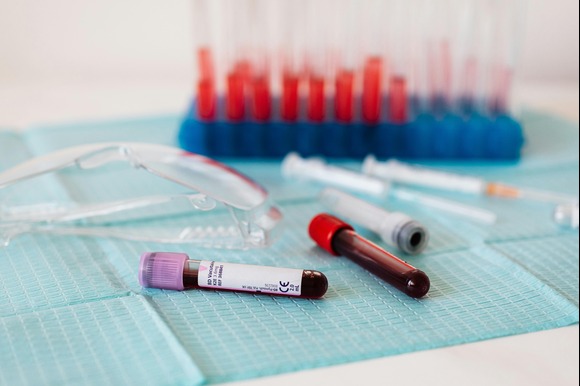A groundbreaking blood test capable of detecting more than 50 types of cancer could significantly speed up diagnosis and improve survival rates, according to a new North American study.
Trial Shows Early Detection Across Dozens of Cancers
Researchers found that the test identified a wide range of cancers — including three-quarters that currently have no existing screening programme — and detected over half of them at an early stage, when treatment is often more effective and potentially curative.
Developed by US-based pharmaceutical company Grail, the Galleri test works by detecting fragments of cancerous DNA shed from tumours into the bloodstream. The test is currently undergoing trials with the NHS in the UK.
Results from 25,000 Participants
The latest trial followed 25,000 adults in the US and Canada over the course of a year. Nearly one in every hundred participants received a positive result, and subsequent tests confirmed cancer in 62% of those cases.
Lead researcher Dr Nima Nabavizadeh, associate professor of radiation medicine at Oregon Health & Science University, said the findings show that the test could “fundamentally change” how doctors approach cancer screening.
He explained that detecting multiple types of cancer “earlier, when the chance of successful treatment or even cure are the greatest,” could mark a major shift in oncology practice.
Accuracy and Potential Impact
The Galleri test correctly ruled out cancer in more than 99% of participants who tested negative. When used alongside existing screening programmes for breast, bowel, lung, and cervical cancers, it increased the number of cancers detected by seven times.
Significantly, three-quarters of cancers identified by the test were those with no current national screening programmes — such as ovarian, liver, stomach, bladder, and pancreatic cancers.
The blood test also correctly pinpointed the origin of the cancer in nine out of ten cases, suggesting a high level of diagnostic precision.
Promise and Caution from Experts
The results suggest that the blood test could play a major role in diagnosing cancers earlier, potentially saving thousands of lives. However, scientists unaffiliated with the study urged caution until further evidence is available.
Professor Clare Turnbull, from The Institute of Cancer Research in London, said more comprehensive studies are needed to determine whether early detection through Galleri will actually reduce deaths.
“Data from randomised studies, with mortality as an endpoint, will be absolutely essential to establish whether seemingly earlier-stage detection by Galleri translates into benefits in mortality,” she said.
Major NHS Trial Underway
The topline results will be officially presented on Saturday at the European Society for Medical Oncology congress in Berlin, though full details have yet to be published in a peer-reviewed journal.
The ultimate verdict may hinge on a large-scale, three-year NHS trial involving 140,000 patients in England, whose results are expected next year.
If the findings are positive, the NHS has said it plans to expand the testing programme to one million more people across the UK.
“Very Compelling” Results, Says Grail
Sir Harpal Kumar, president of biopharma at Grail, described the findings as “very compelling.”
Speaking to BBC Radio 4’s Today programme, he said: “The vast majority of people who die from cancer do so because we find their cancers too late.”
Many cancers, he noted, are only discovered when they are already advanced. “The goal is to shift to earlier detection, when treatments are much more effective and potentially curative,” he added.
Calls for Further Research
However, Naser Turabi of Cancer Research UK warned that more research is needed to ensure the test does not lead to overdiagnosis — the detection of cancers that might never have caused harm.
“The UK National Screening Committee will play a critical role in reviewing the evidence and determining whether these tests should be adopted by the NHS,” he said.






